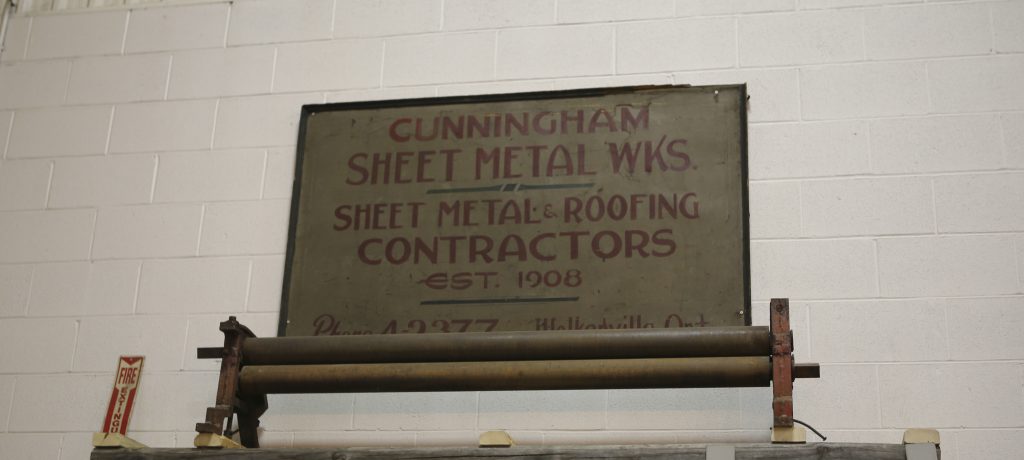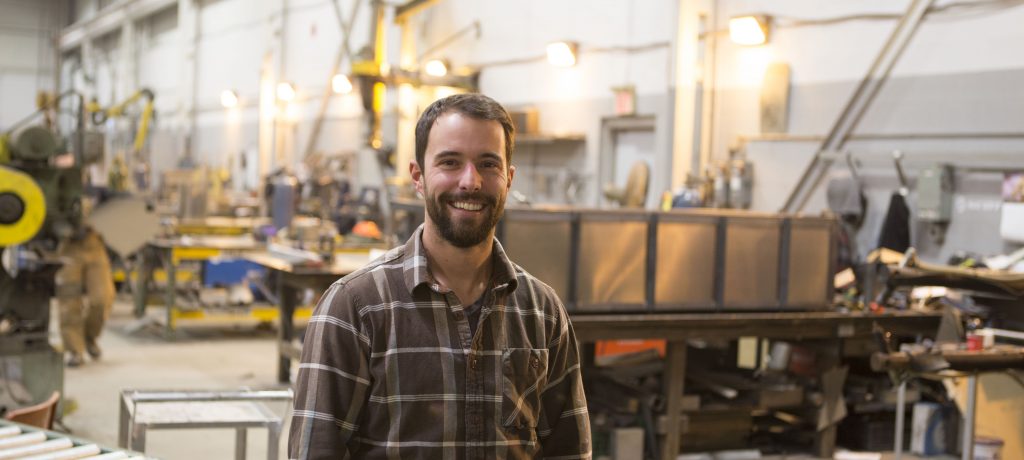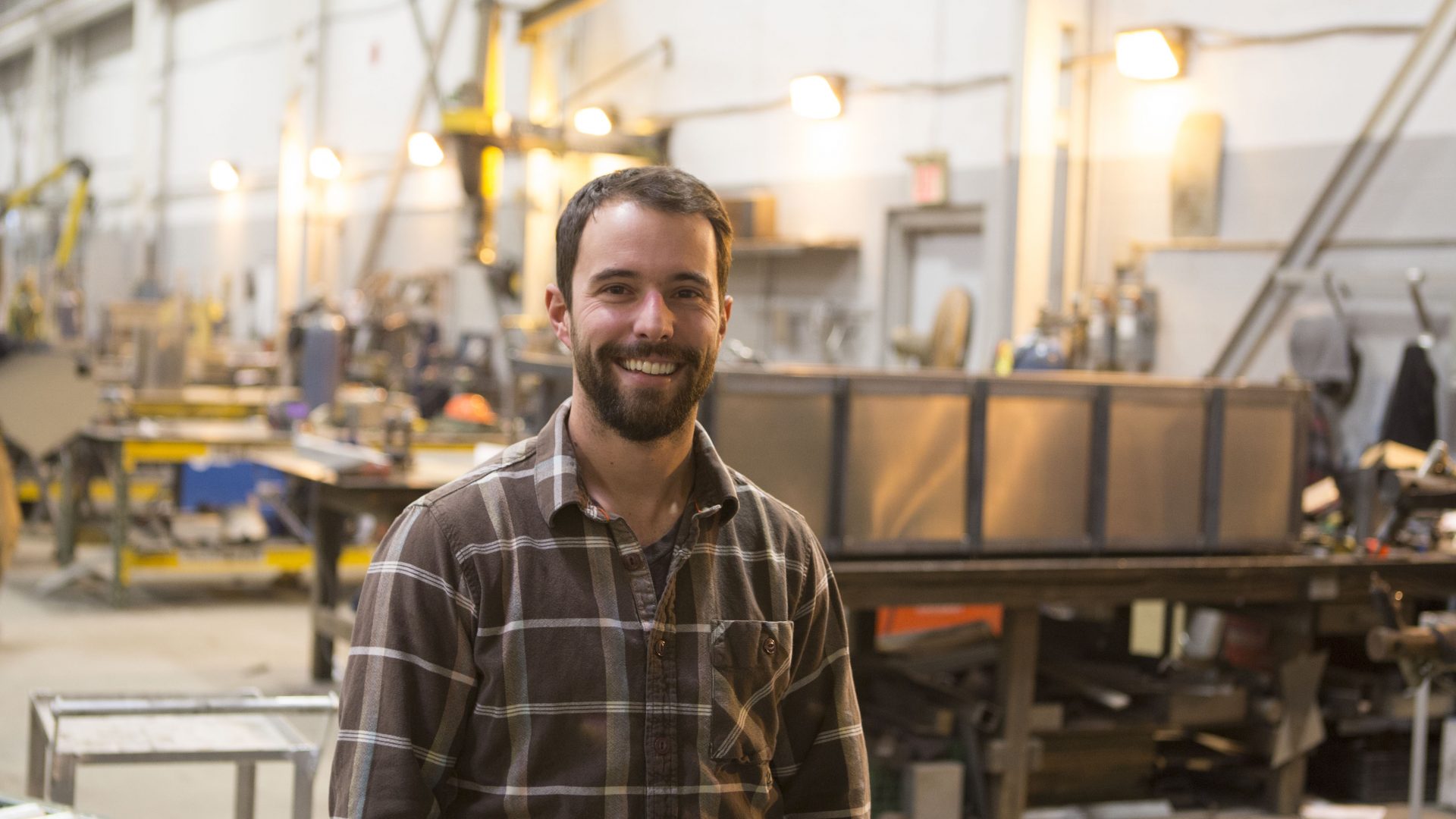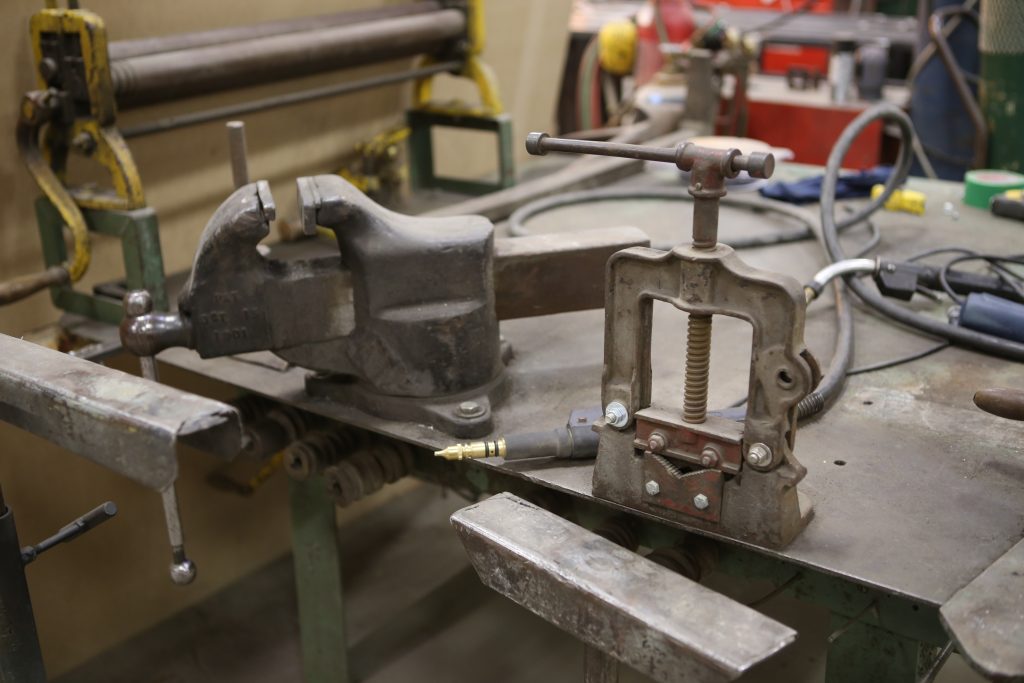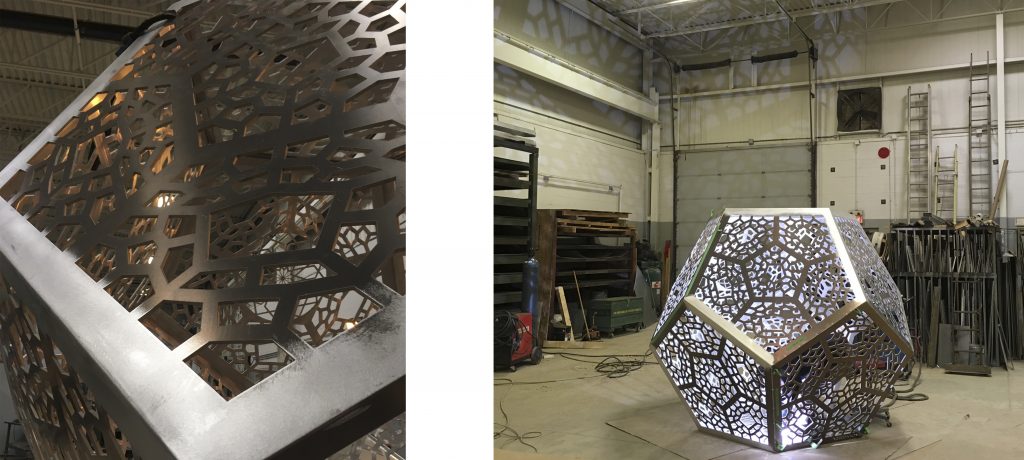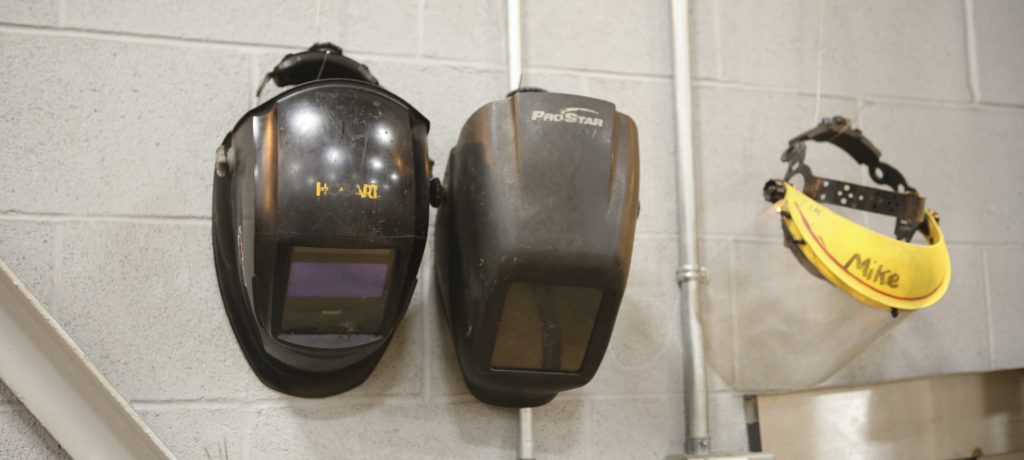Workforce Profiles look at the people behind Workforce WindsorEssex’s 120+ In-Demand Jobs. Each week, we talk to a different professional for an inside look into their work.
This week, we met with Justin Marchand, a certified Red Seal Welder, Sheet Metal Worker and the Chief Operating Officer at Cunningham Sheet Metal in Oldcastle to learn about his experience in the trade.
More about Cunningham Sheet Metal: “Since 1908, Cunningham Sheet Metal has been the industry leaders in sheet metal, miscellaneous steel and specialty metal fabrication and installation. Our extensive knowledge and experience in our industry make us Windsor and surrounding area’s leading contractor of choice for stainless steel, aluminum, mild steel, brass, copper and lead coated copper fabrication.”
You can learn more about Welders and related Machine Operators through our detailed Career Profiles.
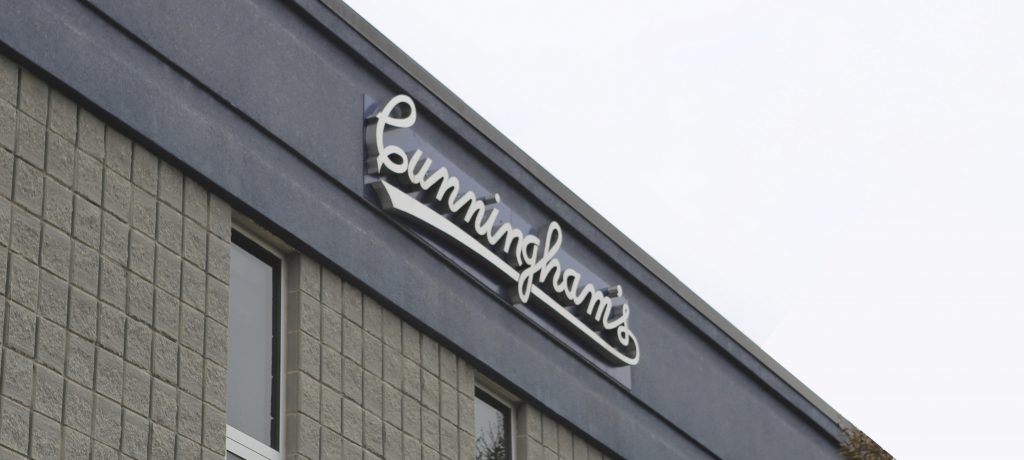
Can you tell us about what you do here at Cunningham?
We’re sheet metal workers by trade, Cunningham has been around since 1908 so over the years the company has branched out to custom fabrications which involves a lot of everything; sheet metal work, welding, metal forming, and anything in between. We’ve become diverse over the last 100 years. We have something pretty cool going here because we get to do something different every day. On the shop floor we have 8 tradesmen out on the shop floor. We do anything from stainless steel railings, to residential kitchen backsplashes to fixing peoples lawn mowers. One day you can be working on a million dollar house, and the next you could be fixing a bike. It keeps things interesting doing something different every day.
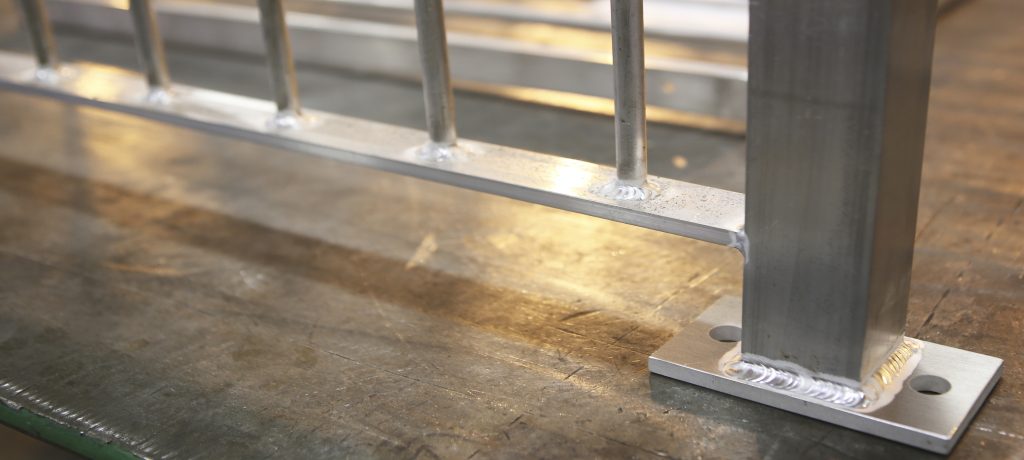
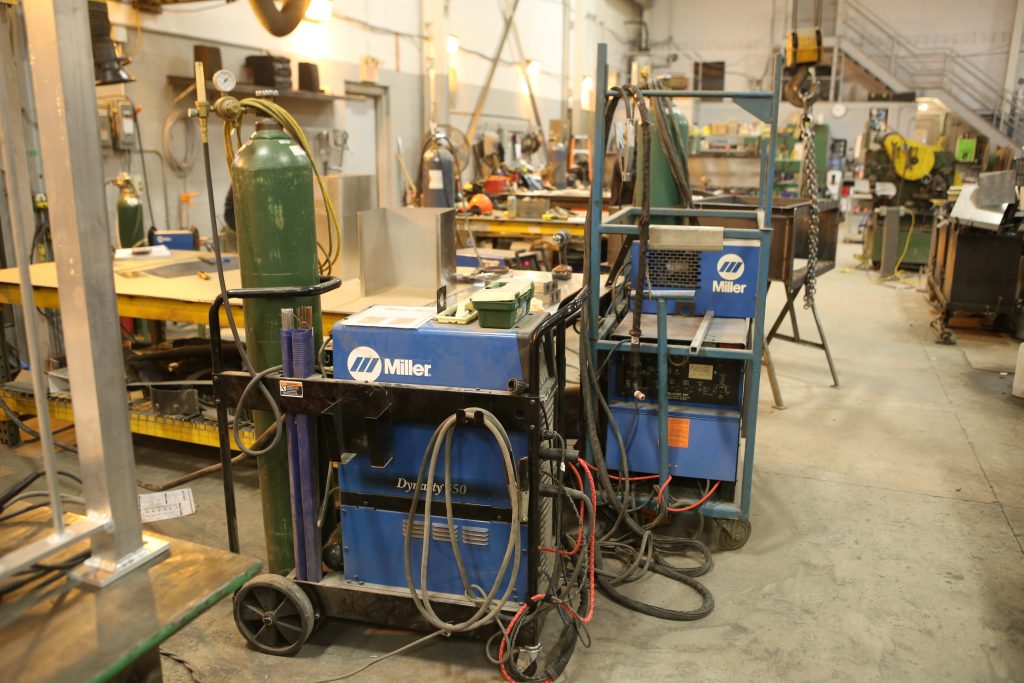
What lead to you to pursuing this career path?
I wasn’t sure what I wanted to pursue out of high school, wasn’t super interested in anything in college or university. One of my family friends was a sheet metal worker and said “I think you’d do well at this”.
I said sure, it’s an apprenticeship, I get to work, and make money still while I learn through school, so I figured I had nothing to lose so did it and it worked out really well. The schooling for the sheet metal trade through the union was in Oakville- Ontario sheet metal workers training center.
Over the five year sheet metal worker apprenticeship I had to go to Oakville for three rounds of schooling- two months at a time. It wasn’t easy to figure out our own arrangements for living out of town, but it was worth it, because it was great training, and if you’re in the trade you can get good wages. I did my apprenticeship here at Cunningham almost 10 years ago.
I also did the apprenticeship for Red Seal Welder. Sheet metal and welding are so interconnected that I was able to use my hours from my sheet metal apprenticeship towards the welding apprenticeship. I still had to do the schooling but luckily I was able to do it here in Windsor through night and weekend classes so I could continue to work. It was still three additional years of schooling but it was well worth it getting that second license.
When I started here I was out on the floor every day, over time a couple experienced guys retired, I got asked to do the shop foreman position. I did that for a couple years and then more people retired or moved and I started talking to the owners about partnership, and I moved up the ladder from there.
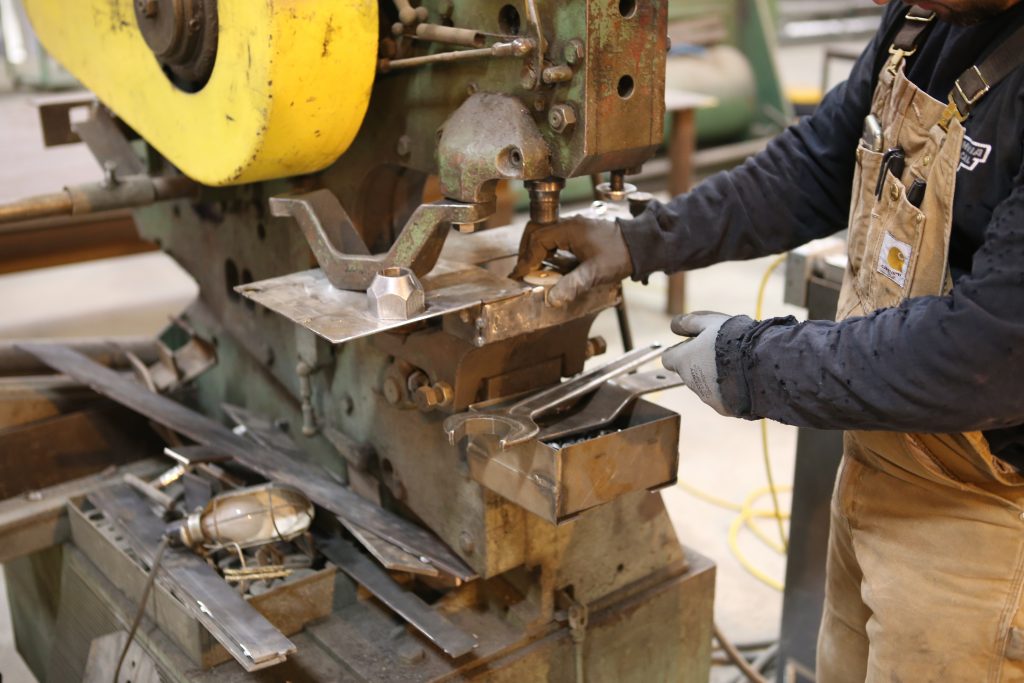
What is your favourite part of the job?
Seeing the finished product- mostly when it’s been installed – in someone’s house, or a finished welded architectural artwork pieces- standing back and being able to say that you were a part of that. You made that, that’s your work craftsmanship, it’s a rewarding part of the job.
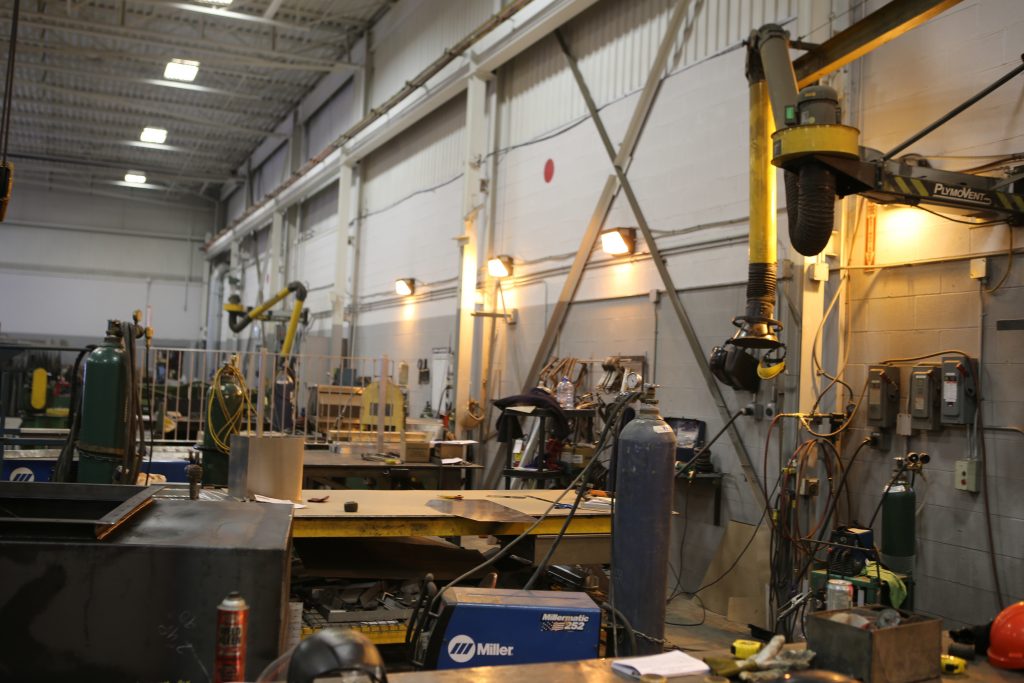
What is your favourite piece that the company has produced?
Most recently that’s the large Windsor Sign that is currently installed at Bright Lights in Jackson Park. We’ve done a lot of stainless steel signage at the University, and other statues/sculptures. We just did a large railing for an observation tower at Point Peele. It will be a 90 ft tower and we did all the aluminum railings on it. It’s cool to be able to go to those places and stand back and see that you were a part of that. We definitely have a pretty good presence in the city here for our craftsmanship, it’s good to be a part of that.

What’s a challenging part of the job?
Sometimes the most challenging parts are the conditions we’re working in. We’re not always working in the shop making something to be later installed.
We do a lot of on-site welding- and you could be in the bottom of a pit fixing a hole in something, doing patch work. There are definitely some not as fun jobs to work on. They are pretty spaced out, and there’s not too many of them- but that would probably be the hardest part of the job- when it does happen. Working in the wet, dirty or hot conditions. But that’s part of the job and every job has its positives and some negatives.
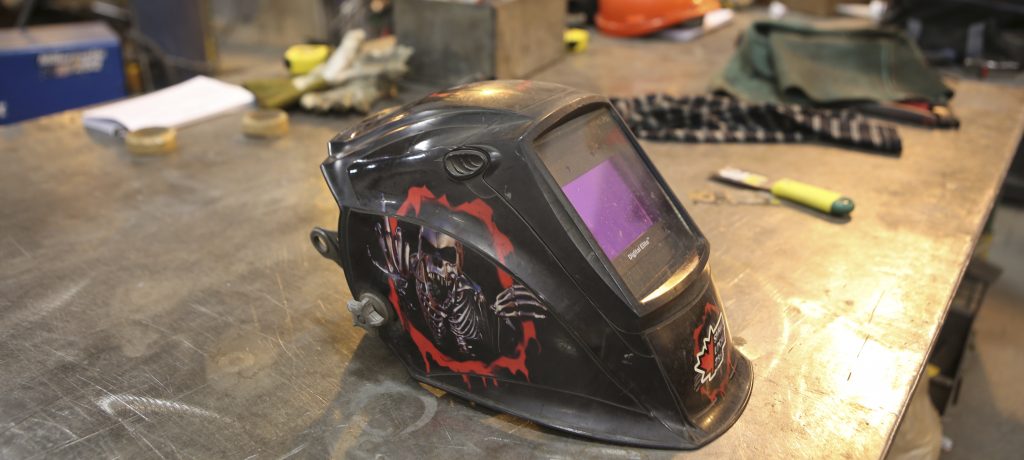 Do you think that’s a reason why this job is in demand? People aren’t willing to do a job with conditions like that?
Do you think that’s a reason why this job is in demand? People aren’t willing to do a job with conditions like that?
For the trades- there’s going to be a big gap with the baby boomers, and we’re already worried- we have a hard enough time here finding workers because we are such a diverse, high skills shop. We are a Union shop, so that narrows it down even more- we have to hire through the union hall. They only accept certain people- we can recommend people- but it’s still another channel that things have to go through. Our trade is sheet metal, but we’ve gone so much farther than that here. So we have a really hard time finding the skilled people that we need that can do everything- or find the people who are willing to learn. People don’t want to put the effort in.
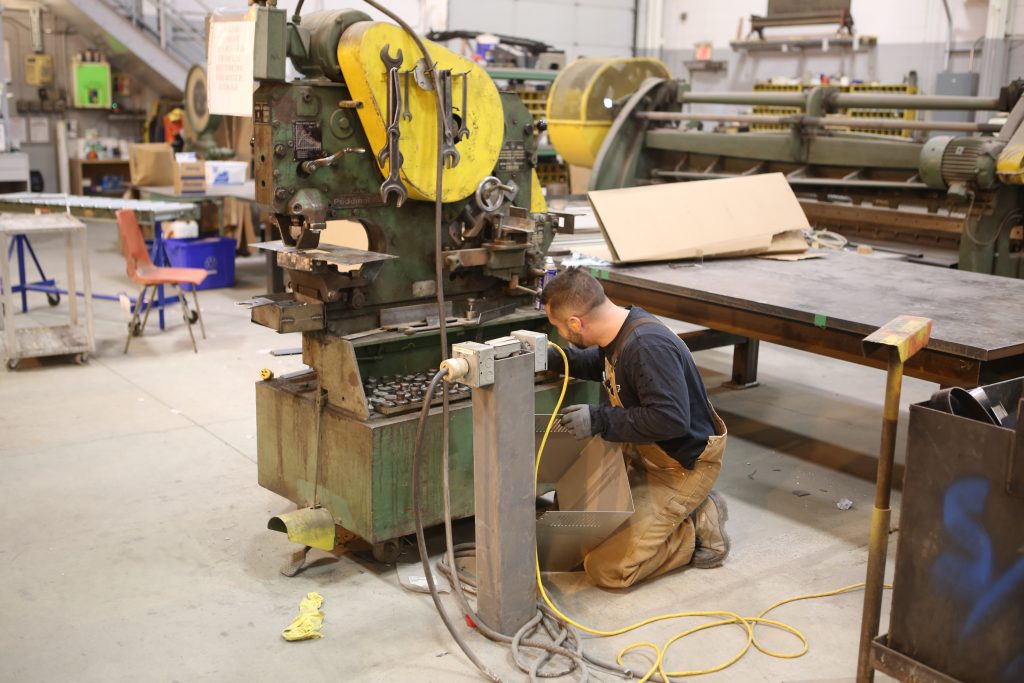
Can you tell me about the on-the-job training?
A lot of our training is done through the union hall, so they are pretty great at making sure that the guys know what they need to know for the job. The employers pay into the training fund, the union hall sets up the training, whatever that training needs to be at the time, and it’s all paid for the guys, It’s great for us because with the union, sometimes when one employer doesn’t have the work, the guys will go work for another employer who needs extra help. It keeps all the shops happy because it keeps things fair. Even if people float around, training still happens, and there isn’t one employer stuck with the bill for training.
Investing in the employees is definitely important. Keeping employees comfortable and happy is important too. The company is only as good as the people working there. If the people aren’t happy they aren’t going to be out for the company.
